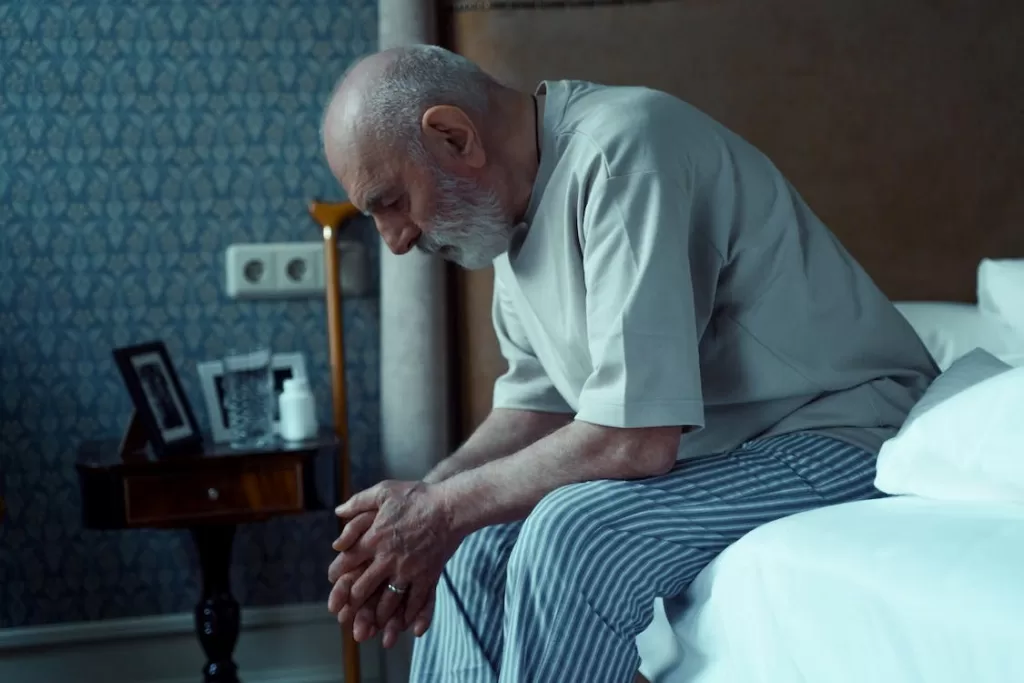
Getting quality sleep is essential for maintaining optimal mind and body health at any age. For older adults, experts suggest that good sleep can help keep the immune system strong, regulate mood, enhance concentration, and even prevent Alzheimer’s disease. Timed properly, short naps during the day may also be beneficial in reducing fatigue, aiding memory formation, and reducing the risk of heart problems.
However, on the opposite end of the spectrum, studies show that there’s also a connection between insomnia and declining vision, which can be especially critical for older adults. In this article, we’ll explore how difficulties with sleep can affect vision and share practical tips for improving sleep quality.
The link between insomnia and vision problems in senior adults
A recent study featured in BMJ Open reveals a connection between poor sleep and a heightened risk of developing glaucoma, a major cause of blindness in people over the age of 60. The research, spanning a decade and involving 400,000 participants aged 40 to 69 without pre-existing glaucoma, identified that individuals with unhealthy sleep patterns, including snoring, daytime sleepiness, insomnia, sleeping less than seven hours, or sleeping more than nine hours per night, were more prone to developing glaucoma. Specifically, those with insomnia faced a 1% higher risk.
The researchers speculate that increased eye pressure during sleep and disruptions in sleep hormones, as seen in insomnia, could contribute to the elevated glaucoma risks, given that the condition results from heightened pressure on the optic nerves connecting the eyes to the brain.
What you can do to improve sleep quality
Get some sunlight during the day
The body’s sleep-wake cycle is largely moderated by light exposure that affects the production of the sleep hormone melatonin. In fact, a study published in the Journal of Affective Disorders found that greater time spent in outdoor light during the day was associated with better sleep as well as fewer symptoms of insomnia. This is because of the impacts of light on the circadian system and the direct effects of sunlight on mood centers in the brain. As such, Dr. Sean Cain, the study’s lead author, recommends spending some time outdoors while the sun is out.
Wear blue light glasses
In the US, the AARP reports that 86% of seniors aged 50 to 59 and 62% of those aged 70 and older use smartphones. Prolonged exposure to digital screens like smartphones has long been associated with computer vision syndrome and insomnia due to the blue light emitted by digital screens. To prevent screen time from impacting sleep quality, senior adults can opt to use blue light glasses that block potentially harmful blue-violet light from both natural and digital sources. With eyewear retailer LensCrafters, blue light-filtering lenses can be fitted alongside single-vision as well as progressive lenses so that seniors can maintain optimal vision, reduce eye fatigue, and improve sleep patterns.
Minimize light exposure at night
In a 2014 investigation, researchers demonstrated that exposure to light at night in home settings is significantly associated with both subjective and objectively measured sleep quality in a community-based elderly population. Notably, intense light at nighttime was linked to poor sleep quality, decreased sleep efficiency, and shortened total sleep time. While keeping a dark environment in the evenings is ideal, the next best thing for seniors is to have a dim night light to aid relaxation before bed. For this, experts advise using lamps with colors close to red on the light spectrum, like the motion-detecting Casper Glow Night Light. Additionally, if you wake up during the night, being exposed to red light will make it easier to fall back asleep than being exposed to bright, white light.
For seniors, a good night’s sleep is more crucial than we might realize. By understanding the link between insomnia and vision problems, older adults can take steps such as the tips outlined above to move toward a healthier and more vibrant life.










